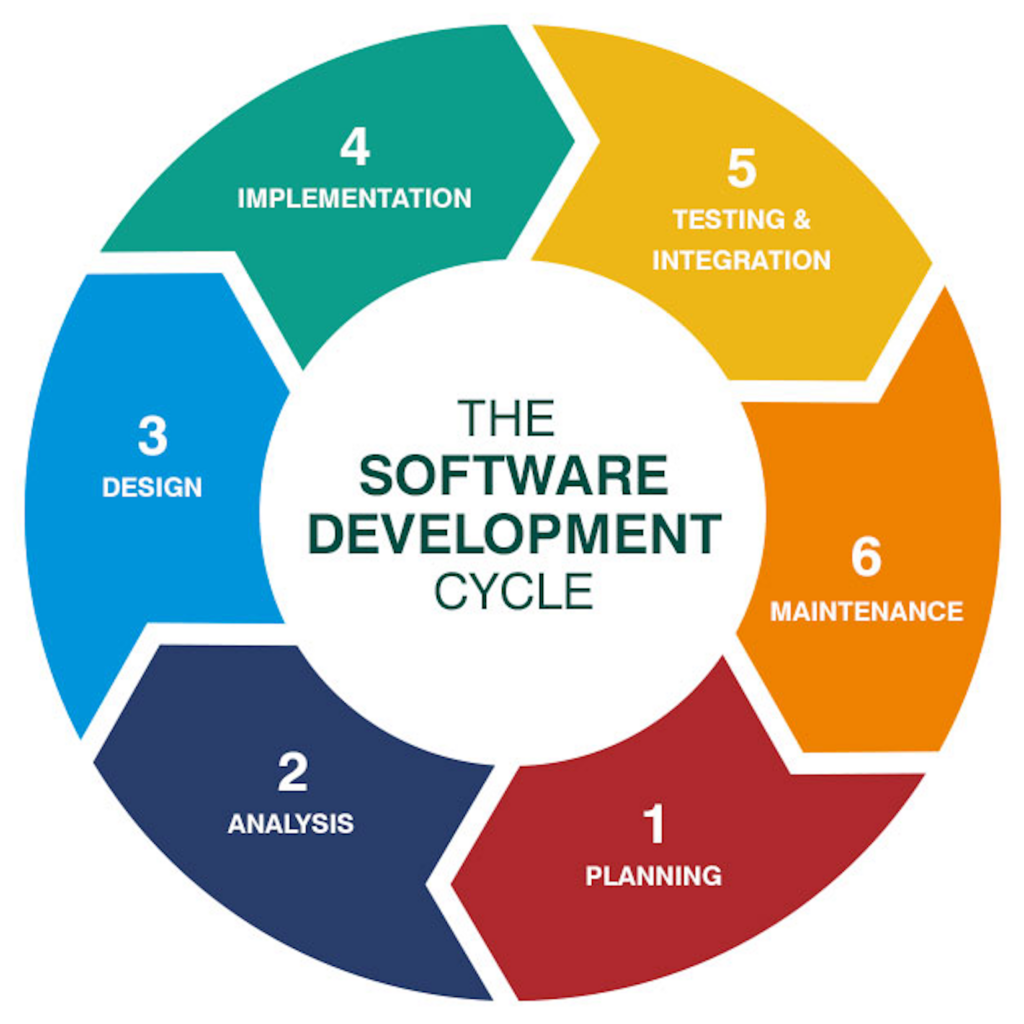How do you know a software program or website is working as it should? As you’re writing code, you may not notice a tiny error or bug. But that small error or bug can come with big consequences (especially if you’re working for a major company).
This is where software testing comes in. What is software testing? In short, the software testing process puts another set (or sets) of eyes on code to make sure it is error-free and working exactly as it should be.
In this post, we’ll cover more about what software testing is, why it’s important, the different types of software testing (e.g. what is unit testing vs integration testing?), how the software testing life cycle works, where to start learning it, and more.
Disclosure: I’m a proud affiliate for some of the resources mentioned in this article. If you buy a product through my links on this page, I may get a small commission for referring you. Thanks!
What Is Software Testing?
In simple terms, software testing is exactly what it sounds like it is: the practice of testing software to verify that it matches expected outcomes. The purpose of software testing is to identify errors, gaps, or missing requirements in a software product/website.

Software engineers can perform tests on their own code, but there are also entire professions dedicated to software testing.
Common titles for software tester jobs include:
- Software testing engineer
- Systems tester
- Quality assurance (QA) engineer
- QA tester
- Test automation engineer
Software testers use both manual and automatic methods to test code.
☝️ Back to top
Start coding now
Stop waiting and start learning! Get my 10 tips on teaching yourself how to code.
Why Is Software Testing Important?
Failing to test software can lead to IT outages, hacks/attacks, data leakages, and more. Just take a look at these top software failures due to lack of testing.
Even if it’s not something as major as that, failing to test software can also just frustrate customers/lose a company business (glitches, bad functionality, etc).
Ultimately, software testers can save a business money, add security, improve performance, and keep customers happy.
☝️ Back to top
Types of Software Testing
At a high level, you can break the types of software testing into two kinds: manual and automation testing.
Various types of testing, like penetration testing, unit testing, and smoke testing can be done both manually or in an automated fashion. Automation testing is faster, but both types are important.
✍️ Manual software testing
As the name suggests, these are testing methods that are done manually. Most commonly, a manual software tester plays the role of an end user (customer, client, user, etc.) and uses various features to make sure the program is behaving correctly.

💻 Automation testing
This software testing type relies on automating testing using tools or test scripts. This involves writing pre-scripted tests that compare actual vs expected outcomes.
Languages used to perform automated testing include Java, Python, C#. Other tools include Selenium, Appium, Cucumber, Postman, etc.
There are tons of automation testing methods out there, including:
- Unit testing: The smallest testable parts of an application (units) are individually tested.
- Regression testing: Ensures that previously developed and tested software will still perform as expected after code changes, updates, etc.
- Integration testing: Different units, modules, and components of a software program are tested all together
- Penetration testing: AKA ethical hacking. Software tester tries to hack into the system, pretending to be a hacker. Includes black-box testing, white-box testing, double-blind testing.
- End-to-end testing: A technique that tests an entire software product from beginning to end. Replicates live settings to simulate what a real user scenario looks like from start to finish.
- Stress testing: Tests how an app performs under stress
A software testing engineer may use any or all of these in the course of their work.
Functional & non-functional testing
In addition to manual vs automation testing, types of software testing can also be broken down into functional vs nonfunctional testing:
- Functional testing: Software is tested against the functional requirements and specifications. It looks at the core things like software behavior/execution and could involve checking APIs, databases, security, etc.
- Non-functional testing: Checks wider non-functional aspects (performance, usability, reliability, etc.) of a software application.
Functional testing is important to get a working product to market, but non-functional testing is also critical to ensuring that users have a good experience with it.
☝️ Back to top
Where Does Software Testing Fit Into The Overall Development Process?
The software testing process usually starts after the development/coding phase (aka implementation) in the Software Development Life Cycle (aka the SDLC), but before product release/maintenance.

However, test planning actually starts way before that. Here’s a peek at the software testing process in the context of the development life cycle:
- Before code is even written, software testers can look at a document called Functional Requirements Document (FRD) to start planning what will need to be tested and how
- A testing strategy is then formulated (what kinds of tests, when, who, etc). To determine “how” to test something, test cases will be written (a set of actions that will need to be taken to test something, aka the testing procedure)
- Testers then need to set up the testing environment, which is separate from the actual production environment
- Once code has been written by software engineers, software testers run the tests they have been planning
- They then report out their findings so software engineers can make the necessary changes
- Then the software testing process is done all over again until the software is ready to be launched/released to customers
Note: In a DevOps environment, testing may be done at multiple stages of the development process, not just after the code has been written.
☝️ Back to top
Start coding now
Stop waiting and start learning! Get my 10 tips on teaching yourself how to code.
How to Learn Software Testing
Looking for a good software testing course to get started? Check out these options.
- Software Testing and Automation Specialization on Coursera: A 4-part learning path that covers black-box and white-box testing, automated testing, web & mobile testing, and formal software testing theory and techniques. Experience with an object-oriented programming language (preferably Java) is required.
- The Complete 2022 Software Testing Bootcamp on Udemy: Starts from the basic software testing concepts and goes all the way through to white-box test techniques, API testing, SQL, Java, and more. 28.5 hours of on-demand video.
- Professional Certificate in Automated Software Testing on edX: This 3-month professional cert will teach you how to test any software system using current state-of-the-art techniques. Covers automated software testing.
- Become a Test Automation Engineer on LinkedIn Learning: In this learning path, learn the fundamentals and get hands-on practice with Selenium, Python, and other test automation tools.
- Quality Assurance for Beginners – Learn Manual Software Testing on Skillshare: A perfect course for those just starting out. Software testing 101. Covers manual software testing and important techniques like test cases and various testing methods.
☝️ Back to top
Is Being a Software Tester Right for You?
Software testing is a crucial part of software development. That also makes it a super in-demand career path. And a lucrative one at that, with software testing engineer careers pulling in an average of $86,700/year 💰.
Start learning essential software testing skills using the courses above to see if it might be a good fit for you!

